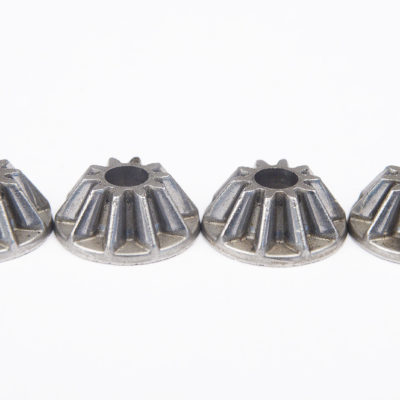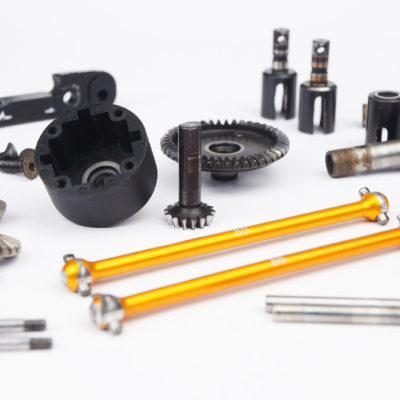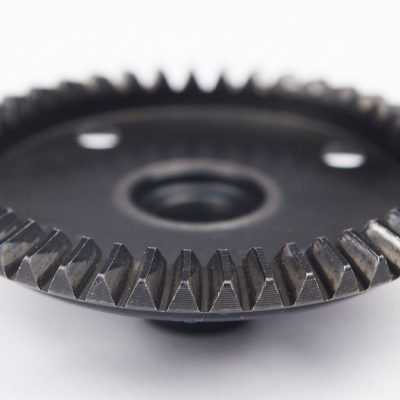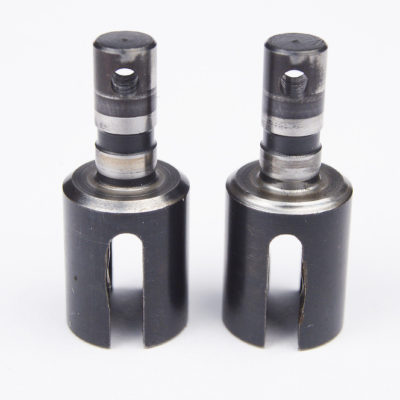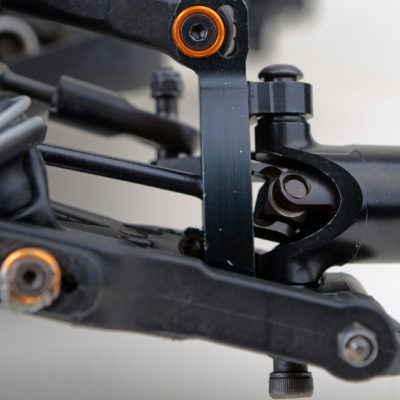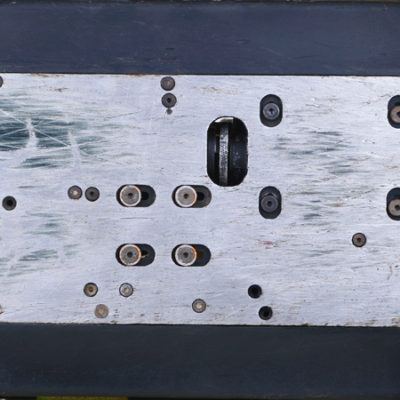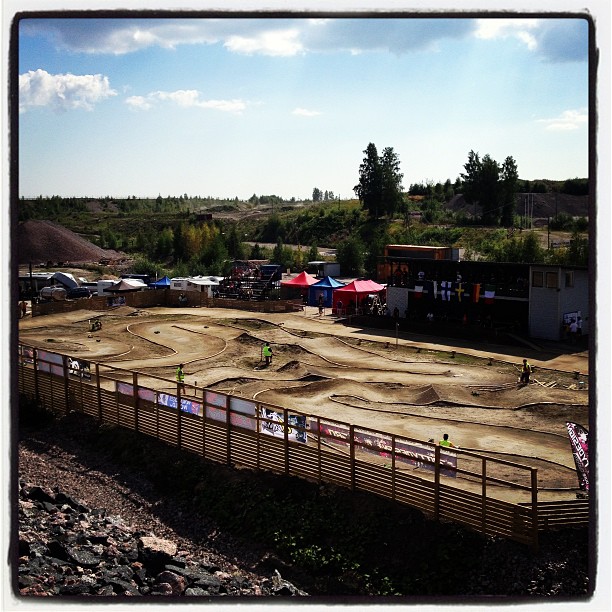Last year I performed a durability test on THECar White Edition. I built a new car for the Nitro Challenge 2014 in February in USA, and then documented each time I drove the car. I only replaced parts that broke, in order to see how the wear rate is on the car, and if anything breaks due to stress and the rigours of racing. I practiced and raced on a variety of different tracks in various different conditions, from hot South Africa, to mild Michigan, and cool Finland. Here is a list of the races I did, of the option parts I fitted my car as new. Please read the article below!
Races and Practice

Nitro Challenge, Phoenix USA

South Africa Race, and Practice, Komati and Avion.
Finnish Nats 1, Jyväskylä

Central RC Raceway Race and Practice, Michigan USA

THETrack Practice, Michigan USA
AMS Race, Alabama USA

AKA Race, Herts UK
Practice in Helsinki, Finland.
Total hours: 25 (Approximately 6 gallons)
Option Parts Fitted
JQB0349 and 350: CNC Gold Aluminium High Wingmounts
JQB0287: CNC Gold Aluminium Servo Saver Top
JQB0102: Extra set of collets used on fuel tank spring
JQB0347 and 348: Grey Medium Hard Springs
During these 25h I replaced the following parts
JQB0338: Front Arms (stretched hingepin hole in huge crash)
JQB0068: Hingepins (bent hingepin in huge crash)
JQB0100: Front dogbone (bent in crash)
JQB0101: Rear dogbone (bent in crash)
JQB0106: Brake Disks (Replaced due to wear, after 4 gallons)
JQB0183: Clutchbell bearings (Change every race)
JQB0282: Clutch Shoes (Change every race)
JQB0133: 1.1mm Clutch Spring (Change every race)
JQB0184: Clutchbell (Changed after 4 gallons)
JQB0040: Shock boots (Changed Every 42 seconds)
JQB0004: Rear Wing (Changed when it started looking too old, will depend on crashing)
Parts that I would replace in a rebuild for a big race after 6 gallons
JQB0163 Front Driveshafts
JQB0126 x 2 Gearbox bearings
JQB0125 x 4 Wheel and diff bearings
JQB0210 Chassis (This depends a lot on the tracks that you run on)
JQB062 Front and rear diff outdrives
JQB059 Centre outdrives
JQB0920, JQB0049, JQB0050 Upper links and balls
JQB0330, JQB0037 Shock o-rings and bushings
JQB0040 Shock boots
JQB0329 Shock bladder
Here you can see a video of the play the car had developed after 25 hours.
https://www.instagram.com/p/rByfVNkFDw/?modal=true
Conclusion
Overall the car held up really well. If there is one area where JQRacing is amongst the very best, it is the durability of the car, specially the drivetrain parts. The gears are like new! When I first started, I actually used the same set of crown and pinion gears for two years! And they still looked like new. The gears have got to be the most durable part of the car.
Shocks also last forever it seems, I didn’t even replace shock bushings or o-rings. However, for best performance, the o-rings would need replacing as they swell.
The bearings are also very durable, and will not cause problems, or even require maintenance, unless you want to make sure you have the most free drivetrain possible. Just make sure you shim the wheel bearings properly so you eliminate slop, but do not stress the bearings.
Many people definitely over think and over work.
Many people definitely over think and over work. MY goal with the car is produce one which maximises your time spent driving and racing, and minimises the time spent maintaining it. So I want it to be easy to work on, and for it to require minimal maintenance, designing it in a way where the components last a long time.
There is no need to strip the car down at every race. Normally a well built car will last for many gallons. It will definitely last for a race meeting. At a race, it makes sense to keep the car clean, and check all hingepins and shock shafts to make sure they are straight, and of course check to make sure the critical screws are tight. There is no need to dissassemble every single nut and bolt. That actually INCREASES the risk of failure.
So my advice to you, build your cars with care one time, and do minor maintenance and checks at races.
As an example, after I have built a car, I never take apart the centre diff mount or the steering, and never remove the centre mount or engine mount from the chassis. I do it properly one time, and that lasts the car’s lifetime!
Image Galleries
Full Car

Front End Detail

Centre Detail
Rear End Detail
Maintenance Checklist
If you check the list of parts here, you will get a good idea of what parts are needed, and what parts are replaced every few gallons. You don’t HAVE to do this. You can just keep on running, but this guide shows what you need to do to keep the car in top shape! Remember that driving (crashing) style, and the tracks you run on could have a significant impact on some of the parts, such as chassis, arms, links and clutch for example. They may last a lot longer, but should not wear out any faster than this list.
Maintenance Checklist
After 2 gallons
Shock Boots
Clutch shoes
Clutch springs
Clutchbell bearings
After 4 gallons
Clutchbell (check for grooves on the inside)
Front dogbone
Shock Boots
Clutch shoes
Clutch springs
Clutchbell bearings
After 6 gallons
Rear Arms
Rear Top links
Rear Top link balls
Check front driveshafts
Shock Boots
Clutch shoes
Clutch springs
Clutchbell bearings
After 8 gallons
Front Arms
Front Top Links
Front top Link Balls
Ackermann Rebuild Set
Front centre outdrive
Front driveshafts
Clutchbell (check for grooves on the inside)
Front dogbone
Shock Boots
Clutch shoes
Clutchbell bearings
After 10 Gallons
Wheel and Diff bearings
Gearbox Bevel Gear Bearings
Shock bushings
Shock o-rings
Shock lower plastic ball end
Shock springs
Diff o-rings
All Diff outdrives
Centre outdrives
Shock Boots
Clutch shoes
Clutch springs
Clutchbell bearings
Depending on the track you run on, you may have to replace the chassis and front bumper at some stage before 10 gallons. If your track is very abrasive, you should probably consider changing the chassis after about 8-10 gallons.
Please send feedback about this article so we can improve it!


